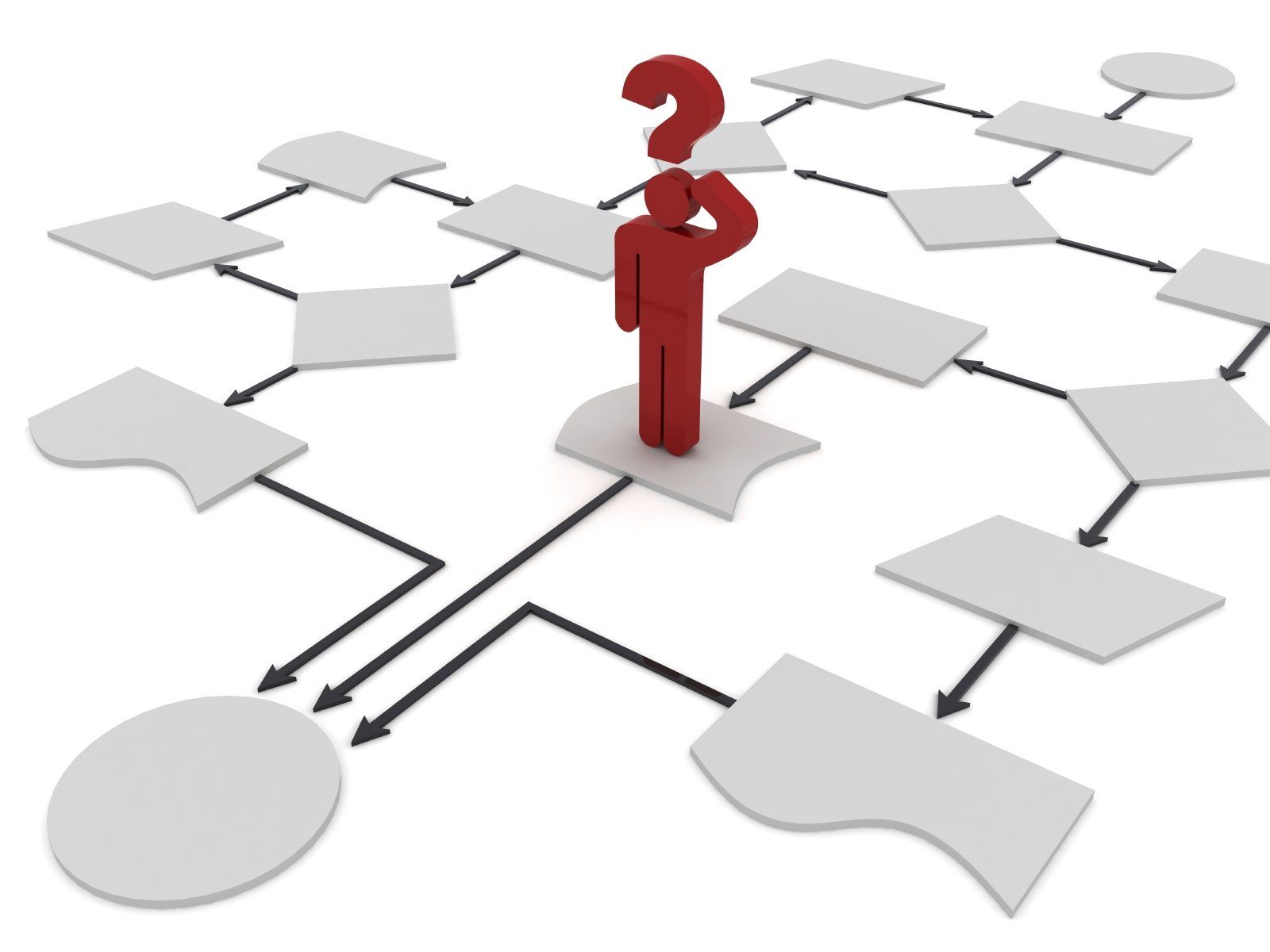The narcissist’s new partner - to tell or not to tell.
Supriya McKenna
The narcissist’s new partner - to tell or not to tell.
You are probably a kind person. A rescuer, perhaps. You may have been the sort of person who believes in giving people chances over and over again, believing that all people are intrinsically ‘nice’, because you know that you
are. You are probably very empathic, and feel other people’s pain. You are most likely someone with co-dependent traits, putting your own needs behind meeting the needs of other people. You tend to trust people straight off the bat.
These qualities are, of course, what made you so attractive to the narcissist in your life, because they make you easy to exploit. They make you someone who will give and give - and tolerate, deny or justify poor behaviour from others. Someone who will try harder to be a better partner, friend, coworker, neighbour, parent, child or sibling, even in the face of (often very subtle to start with) narcissistic abuse. And if you are this type of person, a narcissist magnet, it is likely that your replacement, the narcissist’s new partner, is too.
Assuming you have left or been left by your narcissistic partner, it is more than likely that they will have moved on to a new partner with breathtaking speed. Narcissists rarely have a gap between partners, and may have been grooming several potential replacements for you during your relationship. It is more than likely that within weeks, or a few short months, they will have used their charm and charisma to secure their new source of narcissistic supply.
(Remember that everything a narcissist does is to get ‘narcissistic supply’, their oxygen, which is the external validation they need to bolster their lacking self-esteem. They need to divert themselves from the truth of how they really feel about themselves by propping up their false identity, their external image, and they do this by getting attention, adoration, drama or conflict from those around them. Remember that even though they may appear to believe that they are special, and act correspondingly, inside they feel worthless and empty. And although this may be a sad state of affairs for them, change is unlikely, and their abusive behaviour should not be tolerated, or enabled).
Their new partner will invariably have been swept off their feet, as you had been, when you first met the narcissist. They will not stop to consider how short the time frame was between you and them, in the first heady flush of dopamine, oxytocin and serotinin fueled love. They will believe every word of the lies that the narcissist has told about you. They don’t know that the smear campaign is one of the hallmarks of narcissistic behaviour, following a relationship breakdown. The narcissist will play the hard done by victim, purporting to have been preyed on by you, who they will portray as the unreasonable abuser. They may even tell their new partner, their fan club/harem, and anyone else will listen, that it is you who is the narcissist, and due to their charm and plausibility, they will probably be believed. As if this isn’t bad enough, the narcissist’s ‘enablers’ may even be enlisted to also badmouth you, even to their new partner, making them even more of a sitting duck, and even more sympathetic to their plight.
But, as all this happens, instead of just feeling sorry for yourself, as you have every right to feel, you probably find yourself feeling sorry for their new partner. After all, you now know the playbook. You know the drama cycle of the narcissist - the method he or she uses to rope you in and keep you in the game. Lovebombing you at first, acting the role of the perfect partner, being everything you could have dreamed of. You know how this is followed by tiny, subtle criticisms as the devaluing behaviour begins, and you’ll remember how your heart would sink, and how you would try to ignore it, telling yourself that you were just being sensitive. You can probably now see now, just as you were starting to question the narcissist’s behaviour, or doubt their love, how they would plunge straight back into lovebombing mode, and how you would breathe a sigh of relief, blaming their previous behaviour on stress/ tiredness/ life or whatever else helped you to justify it. Most likely, you now see how these cycles would repeat, sometimes over hours, sometimes over days, and sometimes even over months, making you tiptoe around their egos, making you walk on eggshells, making you too weak to call them out on their behaviour. Making you want to get back that perfect first few months, when you felt like you were living in a beautiful dream.
It’s likely that you look at your narcissist’s new partner and see them as you were - a lamb to the slaughter, drawn in by promises of perfect love, of an incredible future. You probably see how, out in the world, the new partner plays their role with aplomb, deliriously happy, blissfully in love, as you may have done. But you know that underneath it all, somewhere, there’s the tiniest niggling doubt, a gut instinct that all is not well, which they are burying deep within them, not wanting to face.
Cognitive dissonance, the brain’s discomfort at having to hold two opposing beliefs at the same, will be at play. On the one hand, their new partner will know that all is not quite right, and on the other, they will want to believe that they are loved, that everything is ok, and that their partner is a nice person. The brain will want to relieve this discomfort, and so it will make a choice as to which belief to hold, by denying, minimising or justifying the other, so that it can be discarded. It happened to you too, and is one the things that the narcissist capitalises on when luring in and keeping a partner.
Most former victims of narcissistic abuse, once they understand the complexities of Narcissistic Personality Disorder, will want to help the narcissist’s new partner (or, more accurately, the narcissist’s ‘new supply’). They will want to warn them, to prevent them from having to go through the horrific discard and relationship breakdown that they went through. They will want to spare them the pain that they will feel if they stay, only to realise that the narcissist, in spite of all proclamations of adoration, couldn’t truly love them, or anyone at all. They will want to save them from the narcissist’s future faking, to tell them how the things they were promised that really mattered to them were just a lie, and would never really materialise, not in the way they thought they would.
The narcissist’s new supply, just like you, initially thinks that they have won life’s lottery. It can be agonising to watch. You may even have moments of doubt, thinking that perhaps the narcissist has changed, and this love affair is the real deal. It isn’t.
But here’s the rub. No matter how tempted you may be to warn them of the truth - don’t do it. Don’t try to save the narcissist’s new supply. They will never believe you, just as you wouldn’t have believed anyone if they had tried to warn you, all that time ago. It will only backfire on you. You will be made to look vengeful and bitter, and the narcissist will garner even more sympathy from their new partner. You will probably even be accused of harassment.
Walk away. Say nothing. Accept that they are on their own journey, and that if that includes narcissistic abuse then that is a matter for them. Stop trying to save them or rescue them, cruel though it may feel. Put your own needs first for a change. It’ll be good for you. Stand back and watch the inevitable fireworks, through your fingers, if you have to, but do not approach.
Now is a time to focus on you, and your own healing. The incredible growth that can be achieved as a result of surviving narcissistic abuse is nothing short of transformational, and although the journey is a difficult one to undertake, it will set you up for a truly happy, contented life, filled with love and possibility. And, if it makes you feel any better, if this is true for you, then it is also true for the narcissist’s new supply. In turning away and allowing them to walk the path of narcissistic abuse, with all its pain, you may, in fact, be handing them a gift. But whether they choose to unwrap it is their choice - and theirs alone.
These qualities are, of course, what made you so attractive to the narcissist in your life, because they make you easy to exploit. They make you someone who will give and give - and tolerate, deny or justify poor behaviour from others. Someone who will try harder to be a better partner, friend, coworker, neighbour, parent, child or sibling, even in the face of (often very subtle to start with) narcissistic abuse. And if you are this type of person, a narcissist magnet, it is likely that your replacement, the narcissist’s new partner, is too.
Assuming you have left or been left by your narcissistic partner, it is more than likely that they will have moved on to a new partner with breathtaking speed. Narcissists rarely have a gap between partners, and may have been grooming several potential replacements for you during your relationship. It is more than likely that within weeks, or a few short months, they will have used their charm and charisma to secure their new source of narcissistic supply.
(Remember that everything a narcissist does is to get ‘narcissistic supply’, their oxygen, which is the external validation they need to bolster their lacking self-esteem. They need to divert themselves from the truth of how they really feel about themselves by propping up their false identity, their external image, and they do this by getting attention, adoration, drama or conflict from those around them. Remember that even though they may appear to believe that they are special, and act correspondingly, inside they feel worthless and empty. And although this may be a sad state of affairs for them, change is unlikely, and their abusive behaviour should not be tolerated, or enabled).
Their new partner will invariably have been swept off their feet, as you had been, when you first met the narcissist. They will not stop to consider how short the time frame was between you and them, in the first heady flush of dopamine, oxytocin and serotinin fueled love. They will believe every word of the lies that the narcissist has told about you. They don’t know that the smear campaign is one of the hallmarks of narcissistic behaviour, following a relationship breakdown. The narcissist will play the hard done by victim, purporting to have been preyed on by you, who they will portray as the unreasonable abuser. They may even tell their new partner, their fan club/harem, and anyone else will listen, that it is you who is the narcissist, and due to their charm and plausibility, they will probably be believed. As if this isn’t bad enough, the narcissist’s ‘enablers’ may even be enlisted to also badmouth you, even to their new partner, making them even more of a sitting duck, and even more sympathetic to their plight.
But, as all this happens, instead of just feeling sorry for yourself, as you have every right to feel, you probably find yourself feeling sorry for their new partner. After all, you now know the playbook. You know the drama cycle of the narcissist - the method he or she uses to rope you in and keep you in the game. Lovebombing you at first, acting the role of the perfect partner, being everything you could have dreamed of. You know how this is followed by tiny, subtle criticisms as the devaluing behaviour begins, and you’ll remember how your heart would sink, and how you would try to ignore it, telling yourself that you were just being sensitive. You can probably now see now, just as you were starting to question the narcissist’s behaviour, or doubt their love, how they would plunge straight back into lovebombing mode, and how you would breathe a sigh of relief, blaming their previous behaviour on stress/ tiredness/ life or whatever else helped you to justify it. Most likely, you now see how these cycles would repeat, sometimes over hours, sometimes over days, and sometimes even over months, making you tiptoe around their egos, making you walk on eggshells, making you too weak to call them out on their behaviour. Making you want to get back that perfect first few months, when you felt like you were living in a beautiful dream.
It’s likely that you look at your narcissist’s new partner and see them as you were - a lamb to the slaughter, drawn in by promises of perfect love, of an incredible future. You probably see how, out in the world, the new partner plays their role with aplomb, deliriously happy, blissfully in love, as you may have done. But you know that underneath it all, somewhere, there’s the tiniest niggling doubt, a gut instinct that all is not well, which they are burying deep within them, not wanting to face.
Cognitive dissonance, the brain’s discomfort at having to hold two opposing beliefs at the same, will be at play. On the one hand, their new partner will know that all is not quite right, and on the other, they will want to believe that they are loved, that everything is ok, and that their partner is a nice person. The brain will want to relieve this discomfort, and so it will make a choice as to which belief to hold, by denying, minimising or justifying the other, so that it can be discarded. It happened to you too, and is one the things that the narcissist capitalises on when luring in and keeping a partner.
Most former victims of narcissistic abuse, once they understand the complexities of Narcissistic Personality Disorder, will want to help the narcissist’s new partner (or, more accurately, the narcissist’s ‘new supply’). They will want to warn them, to prevent them from having to go through the horrific discard and relationship breakdown that they went through. They will want to spare them the pain that they will feel if they stay, only to realise that the narcissist, in spite of all proclamations of adoration, couldn’t truly love them, or anyone at all. They will want to save them from the narcissist’s future faking, to tell them how the things they were promised that really mattered to them were just a lie, and would never really materialise, not in the way they thought they would.
The narcissist’s new supply, just like you, initially thinks that they have won life’s lottery. It can be agonising to watch. You may even have moments of doubt, thinking that perhaps the narcissist has changed, and this love affair is the real deal. It isn’t.
But here’s the rub. No matter how tempted you may be to warn them of the truth - don’t do it. Don’t try to save the narcissist’s new supply. They will never believe you, just as you wouldn’t have believed anyone if they had tried to warn you, all that time ago. It will only backfire on you. You will be made to look vengeful and bitter, and the narcissist will garner even more sympathy from their new partner. You will probably even be accused of harassment.
Walk away. Say nothing. Accept that they are on their own journey, and that if that includes narcissistic abuse then that is a matter for them. Stop trying to save them or rescue them, cruel though it may feel. Put your own needs first for a change. It’ll be good for you. Stand back and watch the inevitable fireworks, through your fingers, if you have to, but do not approach.
Now is a time to focus on you, and your own healing. The incredible growth that can be achieved as a result of surviving narcissistic abuse is nothing short of transformational, and although the journey is a difficult one to undertake, it will set you up for a truly happy, contented life, filled with love and possibility. And, if it makes you feel any better, if this is true for you, then it is also true for the narcissist’s new supply. In turning away and allowing them to walk the path of narcissistic abuse, with all its pain, you may, in fact, be handing them a gift. But whether they choose to unwrap it is their choice - and theirs alone.

Do I actually need a lawyer? You may be wondering whether you need a lawyer if you are divorcing, as it is possible in some countries, including in the UK, to apply for a divorce online. However, here in the UK at least, there are three bits to the process – the paper exercise of the divorce, which you don’t need a lawyer for, and the other two parts – the finances and the children. Settling the finances with a narcissist is unlikely to happen without legal input, sadly, as narcissists have a huge sense of entitlement, a need to ‘win’, a lack of empathy regarding your circumstances, a need for narcissistic supply through causing drama and conflict, a belief that you (once you have split up) are ‘all bad’ and deserving of punishment, and a need to draw out the process for as long as possible, by continually shifting goalposts. Add to that the fact that they are practised liars, and will not tell the truth about their finances, and you can see why successfully sorting things out on your own with them is highly unlikely (and probably impossible). If they decide to cause conflict with the children, as they often do, lawyers may well also be needed here. Note that it is possible to represent yourself in court, without a lawyer, but that this tends to work best later on, when you have gained experience in how the system works, and are feeling emotionally stronger. I discuss the benefits of being a ‘Litigant in Person’ in Chapter 28 of my book Narcissists in Divorce: From Leaving to Liberty - The Truth, The Whole Truth and Nothing But The Truth. In the UK there are two types of divorce lawyer – the ‘solicitor’ who does the day-to-day work and liaises directly with you, and the ‘barrister’ (who speaks on your behalf in court, and gives more complicated legal advice). If your barrister has been instructed by your solicitor you can only contact them via your solicitor. However, some barristers (‘direct access barristers’) can be instructed directly by clients, without a solicitor being involved. I need to be brutally frank here, and tell you that far too many lawyers will not disclose the reality of the dysfunctional court system to clients, and they have a vested commercial interest in protracted cases, which narcissistic divorces often become. The wrong lawyer can easily rack up your legal bills but leave you with little to show for it. This is particularly true in the UK for solicitors. So, if you happen to be a UK father, whose narcissistic wife is preventing you from seeing your children, you might want to contact Fathers 4 Justice (www.fathers-4-justice.org) before deciding on whether to instruct a solicitor. Unfortunately, no such cost-effective organization exists exclusively for mothers battling abusive fathers in the UK. However, the UK charity Familes Need Fathers (fnf.org.uk) does provide resources to parents of any gender, for a membership fee. But regardless of where in the world you live, most of you will need to know how to go about finding the right lawyer. The fact of the matter is this: most lawyers do not understand Narcissistic Personality Disorder to the extent they need to, to be able to help you effectively. And many will simply pooh-pooh the idea that your partner is a narcissist, because this is a term that commonly gets bandied around incorrectly, especially in break-ups. I recently gave a talk to 250 lawyers about NPD, during which I asked how many of them had been told by a client that their ex was a narcissist, within the last 2 months. Every single hand went up. I then asked how many of them, having spent a bit of time on these cases, now thought that they were dealing with a ‘real’ narcissist. Only five hands remained in the air, and as I gave my talk, I could see these lawyers nodding their heads vigorously, as I described true narcissistic divorce behaviors. So you can see the problem – the ‘buzzword’ use of the narcissism word, in the general population, means that lawyers are unlikely to take your concerns seriously, until significant emotional, legal and financial damage has already been done. This means that, unless you have a strong recommendation of someone who specifically understands NPD, you are going to have to interview quite a few lawyers (they will often offer free initial consultations) until you find the best one for you. It may be that you have to settle for a lawyer who understands domestic abuse and coercive control instead, but only if they are willing to learn about NPD, and will take all of your concerns seriously. It may also serve you to choose a lawyer who is not in your local area, especially as, since Covid, most consultations can be carried out remotely. You may have a distinct advantage if you do this, as an out-of-area lawyer will not have a reputation of ‘being reasonable’ to maintain with your local judges, and is more likely to actually fight for you, rather than trying to tiptoe around or placate the judge. Lawyers care deeply how their local judges view them – and this can be to your detriment. How to interview a potential lawyer When interviewing potential lawyers, you will need to: Explain the narcissist’s behaviors Explain how you have been affected Ask the lawyer specific questions Explaining your partner’s behaviors Describe the behaviors that you (and any children) have been subjected to during your relationship, with specific examples of each behavior. It’s definitely worth writing these down, to keep you focused. Include examples of: Physical abuse (often not present at all in NPD, however). Rape or sexual boundary violations. Repeatedly putting you down, criticizing you, or calling you names. Isolating you from friends and family. Manipulative behaviors. Exploitative behaviors where they have used you for their gain. Passive aggression (such as silent treatments or stonewalling you). Projection (accusing you of things that they themselves are doing or being, for example accusations of affairs or flirting). Favoring a ‘golden child’ over a ‘scapegoat’, and having an ‘invisible child’. Going through repeated cycles of being nice to you, but then being nasty (the ‘cycle of idealization and devaluation’). Lovebombing at the start of the relationship. Low empathy towards you and the children. Entitled behavior. Controlling behaviors such as: Controlling your finances, or preventing you from having a job. Restricting your access to transport. Threats, including of blackmail (e.g. revenge porn). Threats if you leave them (including threats of suicide). Monitoring how you spend your time. Monitoring your communication with others. Exerting control over your everyday life, such as dictating where you go, who you see, what you wear and preventing you from sleeping. Stopping you from accessing support services, such as medical services or specialist support (including for the children). Forcing you to take part in criminal activity such as taking the blame for their offenses (e.g. speeding tickets). Destroying or damaging household goods, or cruelty to pets Gaslighting such as by: Telling you that you are ‘crazy’. Telling you lies that make you question your reality. Rewriting history so that you question your memory. Invalidating your feelings (e.g. telling you that your feelings are ‘wrong’). Explaining how you have been affected Include examples such as: Walking on eggshells. Continually trying to please them with ‘fawning’ behaviors. Anxiety, depression, panic attacks, complex PTSD. Any physical illnesses. Loss of confidence/self-esteem/support systems. Asking the lawyer specific questions You will want to know: What they understand by the term Narcissistic Personally Disorder. If they tell you that they ‘don’t believe in labelling people’, that ‘everyone thinks their ex is a narcissist’, that narcissists are ‘just another word for high-conflict’ or that it ‘makes no difference whether your partner is a narcissist’ to the legal process and your divorce, get out of there, immediately. If they blithely tell you that they are completely au fait with dealing with narcissists, make sure they tell you the specifics of how narcissists behave in divorce. (A client of mine was once duped by his lawyer into believing that he understood NPD because he had written a blog post on his firm’s website about it. £85,000 later, and no further on in the case, it became patently clear that his lawyer’s blog post had simply been a way to jump on the NPD bandwagon, to attract clients, and in fact, he didn’t really have a clue.) How much experience they have of narcissistic divorces, and what they think the chances are of settling things out of court (through negotiation through lawyers or mediation, for example). If they pride themselves on never or rarely having cases that end up in court, they probably do not have the experience that you need, as the fact is that most divorces like this end up in court. Whether they think narcissists ‘calm down’ over time, and become more reasonable as the divorce progresses. The correct answer is that they do not. If they get this wrong, they have failed the interview. Whether narcissists have the best interests of their children at heart. If they tell you that ‘all parents love their children, whether narcissists or not’ they will not be right for you, and they will enable a lot of damage to be done before they work out the truth. Whether they will help you write any witness statements for court, and put together your financial disclosure, or whether they will just leave this to you. Whether they will go through your partner’s financial disclosure (such as their bank statements) in detail with you, looking for discrepancies and missing information, or whether they expect you to do this without them (most simply do the latter). Whether they are willing to learn about NPD (on their own time) and take on board what you tell them about it, so that your case runs more smoothly. Key takeaways It may take a while to find a lawyer who fits the bill. But whatever you do, don’t choose a ‘nice’ lawyer (with little experience of domestic abuse, coercive control or NPD) over a less personable one who does have the required experience. So often, my clients admit to me that they gave their kindly lawyer repeated chances, because they ‘liked them’, and because they thought that they could learn about NPD during their case, and so help others later on. I’m going to be stern here: you do not just need ‘nice’, ‘understanding’ and ‘sympathetic’ – you need effective too. And as to educating your lawyer so that they can help others (if this is part of your thought process) – again, this may go against the grain, but now is the time for prioritizing your needs and those of your family. I also have to caution you that a senior lawyer who seems very experienced may actually be too stuck in their ways to be effective in your case, although that’s not always true. Conversely, a very junior lawyer might find themselves overwhelmed by everything that comes their way during your case, but be unable to be honest about this with you, and carry on regardless. I’ll warn you now – you may well have to change lawyers at some point in the process, and I explain this further in Chapter 31 of Narcissists in Divorce: From Leaving to Liberty - The Truth, The Whole Truth and Nothing But The Truth , from which this blog post was adapted.

The word "narcissist" is ubiquitous, but are we using it correctly or is it just a buzzword? Expert Dr Supriya McKenna explains what real narcissism is Do you know a narcissist? If you think of your everyday acquaintances, who springs to mind as being a possible narcissist? Your housemate, who is too selfish and lazy to do her own washing up? Your sister, who has never left the house without full make up on? Your work colleague, who is obsessed with designer clothes? Your partner, who cheated on you? Your best friend, who insists on driving a sports car he can’t afford? That date, who ghosted you? But are these people actually narcissists? Well, maybe—but having these traits in isolation doesn’t tell us much. How to recognise a narcissist True "narcissism" is actually Narcissistic Personality Disorder (NPD), a real, diagnosable personality disorder, and there is a precise range of very specific behaviours that result from having it. These behaviours go well beyond being just mean, vain or selfish—undesirable and irritating though these are. "You (or someone you know) will definitely know a real narcissist—but it might not be who you think it is" As a society, we have collectively misappropriated the narcissist word—and in using it incorrectly we are downplaying the seriousness of what real narcissism (NPD) is. And worse, because of this, we are missing the true narcissists in our midst. Narcissistic Personality Disorder is estimated to affect up to one in twenty people, although exact figures vary. Each narcissist affects several people to some degree—their partners, children, extended family, friends, work colleagues and even their casual acquaintances. What is Narcissistic Personality Disorder? NPD is fundamentally a condition of low empathy, where the person has a very limited ability to step into another person’s shoes and feel their pain or joy (or any other emotion).This means that narcissists relate to people on a very different level to an empathic person. Essentially, they cannot deeply care about you, other than in the context of what you can do for them. Confusingly, narcissists are usually able to feign empathy. If we add this low empathy to another hallmark feature of narcissism, a sense of entitlement, you can see how narcissists are able to exploit people for their own gain.The narcissist you know may be exploiting different people for different things. They might be taking credit for other people’s work, using their partner as a domestic slave or provider of sex, and using their children as a way to gain admiration from others. "Narcissists are good at feigning empathy, but they cannot truly feel it" Narcissists see people merely as objects, and their exploitation of others often tips into psychological (and sometimes also physical) abuse. Are narcissists born or made? NPD is partly genetic, but it mostly results from how, as children, the person adapted to a difficult upbringing. As a child, the narcissist developed coping strategies which became "wired in". It’s this wiring that leads to the specific patterns of behaviour that adult narcissists exhibit. The vast majority of people with NPD cannot be cured, although a few specialised psychotherapists report some success. At the core of every single narcissist is a feeling of low self-esteem and shame. But these are feelings which a narcissist cannot bear, so they construct a false persona that they hold up to the outside world to hide behind. "At the core of every single narcissist is a feeling of low self-esteem and shame" This false persona is a shield. It protects the narcissist from feeling their true feelings—and it is very convincing to the onlooker indeed. But a narcissist’s protective false persona can only survive in the presence of external validation. "Narcissists need attention from others, at all times, preferably through admiration and adoration." In the absence of this, they secure attention by causing drama and conflict—and even by instilling fear into others. When a narcissist is getting enough attention their false persona is strong, and they can believe that they are special and unique. The most important thing to know about narcissists is that it is their desperate need to feel special that drives all of their behaviours, and that their need for attention (which is known as "narcissistic supply") is constant—their armour will crumble without it. Types of Narcissistic Personality Disorder There are four major types of false persona to look out for, which can overlap: The Exhibitionist Narcissist appears to be devastatingly charismatic, and may be clever, funny, or very sexy. They relish attention. The Devaluing Narcissist is openly toxic. They put people down in order to feel better about themselves through ridiculing, shaming, badmouthing and name-calling. The Communal Narcissist presents themselves as a do-gooder—needing to be seen by others as the most generous, most kind or the most caring. And the Closet Narcissist, the hardest type to spot, shies away from the limelight, but often associates with people who are special to feel special by association. They get their attention in much more sneaky ways than the other types of narcissist—often through playing the victim, and they appear quiet, shy and effacing. "But, regardless of outward type, all narcissists exploit others, and no matter how much love they receive, they cannot be "loved better". " Signs of narcissistic behaviour Telltale behaviours of narcissism "Love bombing" at start of relationships Repeating cycles of niceness and nastiness An inability to be alone Lack of deep, long term friendships Inability to take the blame or responsibility, blaming others instead An inability to apologise and mean it Violating boundaries Lying and gaslighting Episodes of rage Jealousy Accusing others of what they themselves are doing Moral hypocrisy Playing the victim Lack of empathy Entitlement Exploiting others Aggression (including passive aggression) Devaluing and badmouthing others (putting them down, ridiculing them) Manipulating and playing people off against each other Selfishness Conditional, shallow love A need to control others "Lying, gaslighting and manipulation are all hallmark traits of Narcissistic Personality Disorder " A true narcissist will exhibit nearly all of these behaviours and, the closer you are to them, the more of them you will see. But because they intersperse them with nice times, playing what I call "Nice Narcissist, Nasty Narcissist’" you are likely to find yourself sucked back into the relationship repeatedly. This is what real narcissism looks like, and it’s unhealthy, toxic and hard to escape from. But it’s not so hard to recognise—once you know what to look out for. This article originally appeared in Reader's Digest - you can read it here .














